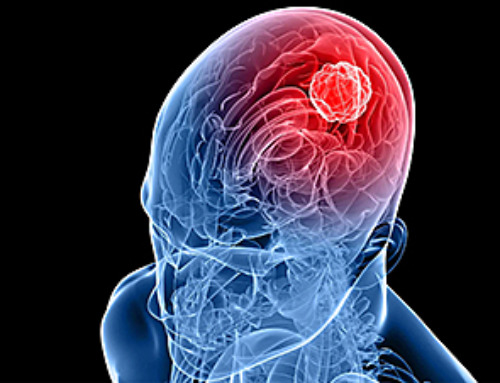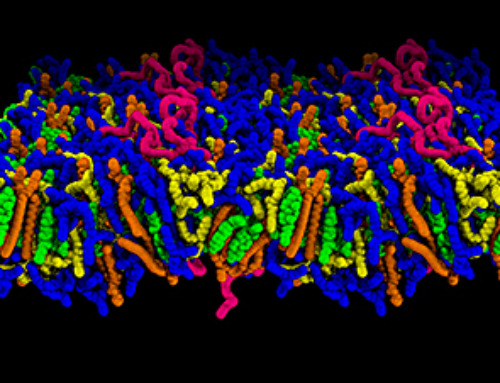Scientists discover that even mild COVID-19 can alter brain proteins linked to Alzheimer’s disease, potentially increasing dementia risk—raising urgent public health concerns.
A recent study published in the journal Nature Medicine investigated whether both mild and severe cases of severe acute respiratory syndrome coronavirus 2 (SARS-CoV-2) infection are linked to changes in brain biomarkers associated with Alzheimer’s disease.
By analyzing blood samples from the United Kingdom (U.K.) Biobank participants, the researchers found that individuals who had COVID-19 showed signs of increased brain pathology, raising critical public health concerns.
Background
As the world continues to recover from the COVID-19 pandemic, scientists are investigating its long-term effects on brain health. Past research has shown that viral infections can trigger systemic inflammation, a key factor in neurodegenerative diseases such as Alzheimer’s disease. Emerging evidence suggests that people who have had severe COVID-19 may be at a higher risk of cognitive decline, but the underlying mechanisms remain unclear.
Alzheimer’s disease is associated with changes in brain proteins such as beta-amyloid and tau, which can be detected in blood samples years before disease symptoms appear. Biomarkers such as amyloid-beta ratio (Aβ42:Aβ40), phosphorylated tau (pTau-181), and neurofilament light chain (NfL) help researchers assess early signs of neurodegeneration.
However, previous studies have focused mainly on severe COVID-19 cases, leaving a gap in understanding the risks for those with mild-to-moderate infections. Given the emerging evidence that even mild or moderate cases of COVID-19 can result in post-acute sequelae of COVID-19 (PASC), this study aimed to determine whether SARS-CoV-2 infection—regardless of severity— could contribute to changes in these critical biomarkers.
About the Study
To explore the potential link between COVID-19 and Alzheimer’s disease-related pathology, the research team analyzed blood plasma samples from participants in the U.K. Biobank COVID-19 imaging repeat study.
The study included 626 individuals who had tested positive for SARS-CoV-2 and 626 matched controls who had not been infected, who had been selected based on health records, antigen test results, and antibody testing. The controls were matched based on age, sex, ethnicity, and location to minimize confounding factors. Notably, the study accounted for key variables such as APOE genotype, hypertension, and lifestyle factors, ensuring a more rigorous comparison between cases and controls.
Blood samples were collected before and after the pandemic for the U.K. Biobank study, allowing researchers to track changes in key neurodegeneration biomarkers. Using ultrasensitive assays, they measured beta-amyloid (Aβ40, Aβ42), pTau-181, NfL, and glial fibrillary acidic protein (GFAP). Additionally, the study utilized proteomic analysis of 1,468 proteins using the Olink Explore platform, providing a broader understanding of how SARS-CoV-2 affects systemic health.
 a, Experimental design. Protein concentrations were assayed from plasma samples acquired from the UK Biobank imaging assessment visits, the second of which was specifically recruited for the study of COVID-19. b, Distribution of participant ages at the pandemic assessment. c, Sources of evidence for case selection. Antibody, home-based lateral-flow SARS-CoV-2 antibody test; Antigen, PCR antigen (swab) test; Health records, GP and/or hospital records. d, Distribution of pre-pandemic assessment visit dates. e, Distribution of pandemic assessment visit dates. f, Distribution of intervals between assessments. g, Estimated dates of COVID symptoms (from participants with antigen test results). Figure created with BioRender.com.
a, Experimental design. Protein concentrations were assayed from plasma samples acquired from the UK Biobank imaging assessment visits, the second of which was specifically recruited for the study of COVID-19. b, Distribution of participant ages at the pandemic assessment. c, Sources of evidence for case selection. Antibody, home-based lateral-flow SARS-CoV-2 antibody test; Antigen, PCR antigen (swab) test; Health records, GP and/or hospital records. d, Distribution of pre-pandemic assessment visit dates. e, Distribution of pandemic assessment visit dates. f, Distribution of intervals between assessments. g, Estimated dates of COVID symptoms (from participants with antigen test results). Figure created with BioRender.com.
The team also examined cognitive function and neuroimaging data to assess brain health over time. The study controlled for pre-existing conditions such as hypertension, diabetes, and obesity to isolate the effect of COVID-19. By comparing biomarker levels before and after the SARS-CoV-2 infection, the researchers aimed to determine whether COVID-19 had a measurable impact on early indicators of Alzheimer’s disease.
Findings
The study found that individuals who had COVID-19 exhibited significant changes in brain biomarkers associated with Alzheimer’s disease. The Aβ42:Aβ40 ratio, a key marker of beta-amyloid buildup, was lower in COVID-19-positive participants compared to their matched controls. A reduced ratio of these proteins is commonly linked to Alzheimer’s pathology.
Additionally, the study observed increased levels of pTau-181, a protein associated with tau tangles in the brain, and elevated NfL levels, which indicated neuronal damage. GFAP, a marker of astrocyte activation and neuroinflammation, was also higher in those who had COVID-19.
Strikingly, these biomarker changes were comparable to four years of aging or 60% of the effect size of inheriting a single APOE-ε4 allele, a well-known genetic risk factor for Alzheimer’s disease.
These biomarker changes were more pronounced in older individuals (particularly those over 70 years old) and those with pre-existing risk factors such as hypertension and obesity. Interestingly, even participants who had mild or asymptomatic COVID-19 showed alterations in their plasma biomarkers, suggesting that the infection’s impact on brain health may not be limited to severe cases.
The researchers also analyzed cognitive test scores and neuroimaging data, finding that COVID-19-positive individuals exhibited lower cognitive test performance compared to controls—equivalent to almost two years of age-related cognitive decline. Brain imaging revealed structural patterns associated with Alzheimer’s disease in some participants, further reinforcing the potential link between COVID-19 and neurodegeneration.
Additionally, the study found that certain inflammatory markers, including TNFSF10 (TRAIL), PTX3, and IL-6, were altered in post-COVID individuals, suggesting a prolonged inflammatory response that could contribute to brain pathology.
The researchers explained that while this study does not establish a direct causal link between COVID-19 and Alzheimer’s, the results raise concerns about the potential long-term neurological consequences of the viral infection. The findings also highlighted the importance of monitoring brain health in post-COVID-19 patients and considering preventive strategies for at-risk patients.
Conclusions
Overall, the study provided new evidence that COVID-19 may accelerate Alzheimer’s disease-related brain changes, even in individuals with mild infections. The observed alterations in plasma biomarkers suggested a potential long-term impact on brain health.
While further research is needed to confirm these findings, the authors emphasized that their results align with previous reports suggesting an increased incidence of dementia following COVID-19. These findings highlight the importance of long-term monitoring, preventive interventions, and future public health strategies aimed at mitigating post-COVID neurological risks.
- Duff, E. P., Zetterberg, H., Heslegrave, A., Dehghan, A., Elliott, P., Allen, N., Runz, H., Laban, R., Veleva, E., Whelan, C. D., Sun, B. B., & Matthews, P. M. (2025). Plasma proteomic evidence for increased β-amyloid pathology after SARS-CoV-2 infection. Nature Medicine. DOI:10.1038/s41591-024-03426-4, https://www.nature.com/articles/s41591-024-03426-4
News
New Molecule Blocks Deadliest Brain Cancer at Its Genetic Root
Researchers have identified a molecule that disrupts a critical gene in glioblastoma. Scientists at the UVA Comprehensive Cancer Center say they have found a small molecule that can shut down a gene tied to glioblastoma, a [...]
Scientists Finally Solve a 30-Year-Old Cancer Mystery Hidden in Rye Pollen
Nearly 30 years after rye pollen molecules were shown to slow tumor growth in animals, scientists have finally determined their exact three-dimensional structures. Nearly 30 years ago, researchers noticed something surprising in rye pollen: [...]
NanoMedical Brain/Cloud Interface – Explorations and Implications. A new book from Frank Boehm
New book from Frank Boehm, NanoappsMedical Inc Founder: This book explores the future hypothetical possibility that the cerebral cortex of the human brain might be seamlessly, safely, and securely connected with the Cloud via [...]
How lipid nanoparticles carrying vaccines release their cargo
A study from FAU has shown that lipid nanoparticles restructure their membrane significantly after being absorbed into a cell and ending up in an acidic environment. Vaccines and other medicines are often packed in [...]
New book from NanoappsMedical Inc – Molecular Manufacturing: The Future of Nanomedicine
This book explores the revolutionary potential of atomically precise manufacturing technologies to transform global healthcare, as well as practically every other sector across society. This forward-thinking volume examines how envisaged Factory@Home systems might enable the cost-effective [...]
A Virus Designed in the Lab Could Help Defeat Antibiotic Resistance
Scientists can now design bacteria-killing viruses from DNA, opening a faster path to fighting superbugs. Bacteriophages have been used as treatments for bacterial infections for more than a century. Interest in these viruses is rising [...]
Sleep Deprivation Triggers a Strange Brain Cleanup
When you don’t sleep enough, your brain may clean itself at the exact moment you need it to think. Most people recognize the sensation. After a night of inadequate sleep, staying focused becomes harder [...]
Lab-grown corticospinal neurons offer new models for ALS and spinal injuries
Researchers have developed a way to grow a highly specialized subset of brain nerve cells that are involved in motor neuron disease and damaged in spinal injuries. Their study, published today in eLife as the final [...]
Urgent warning over deadly ‘brain swelling’ virus amid fears it could spread globally
Airports across Asia have been put on high alert after India confirmed two cases of the deadly Nipah virus in the state of West Bengal over the past month. Thailand, Nepal and Vietnam are among the [...]
This Vaccine Stops Bird Flu Before It Reaches the Lungs
A new nasal spray vaccine could stop bird flu at the door — blocking infection, reducing spread, and helping head off the next pandemic. Since first appearing in the United States in 2014, H5N1 [...]
These two viruses may become the next public health threats, scientists say
Two emerging pathogens with animal origins—influenza D virus and canine coronavirus—have so far been quietly flying under the radar, but researchers warn conditions are ripe for the viruses to spread more widely among humans. [...]
COVID-19 viral fragments shown to target and kill specific immune cells
COVID-19 viral fragments shown to target and kill specific immune cells in UCLA-led study Clues about extreme cases and omicron’s effects come from a cross-disciplinary international research team New research shows that after the [...]
Smaller Than a Grain of Salt: Engineers Create the World’s Tiniest Wireless Brain Implant
A salt-grain-sized neural implant can record and transmit brain activity wirelessly for extended periods. Researchers at Cornell University, working with collaborators, have created an extremely small neural implant that can sit on a grain of [...]
Scientists Develop a New Way To See Inside the Human Body Using 3D Color Imaging
A newly developed imaging method blends ultrasound and photoacoustics to capture both tissue structure and blood-vessel function in 3D. By blending two powerful imaging methods, researchers from Caltech and USC have developed a new way to [...]
Brain waves could help paralyzed patients move again
People with spinal cord injuries often lose the ability to move their arms or legs. In many cases, the nerves in the limbs remain healthy, and the brain continues to function normally. The loss of [...]
Scientists Discover a New “Cleanup Hub” Inside the Human Brain
A newly identified lymphatic drainage pathway along the middle meningeal artery reveals how the human brain clears waste. How does the brain clear away waste? This task is handled by the brain’s lymphatic drainage [...]





















